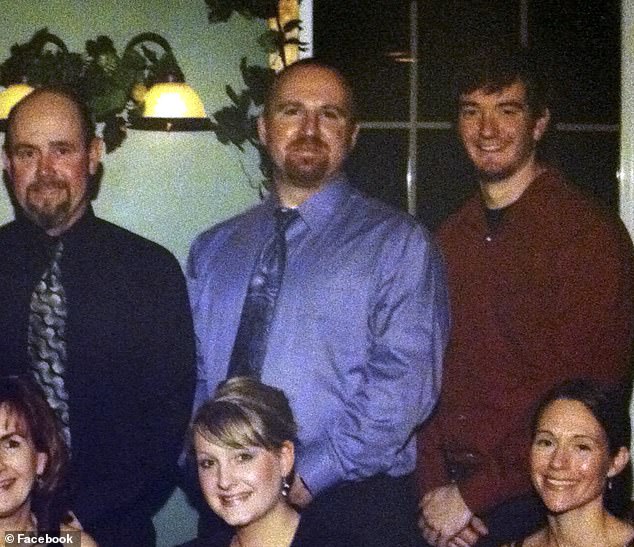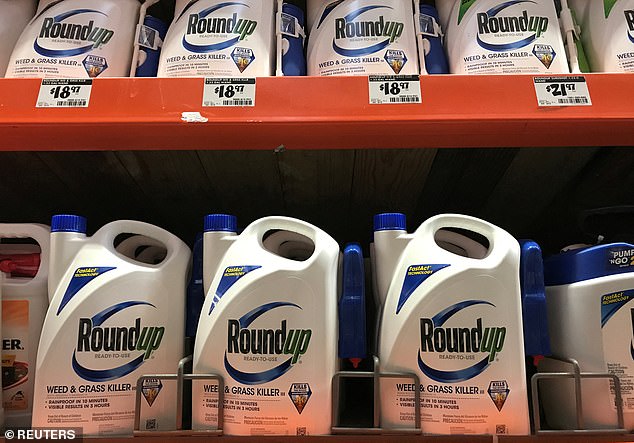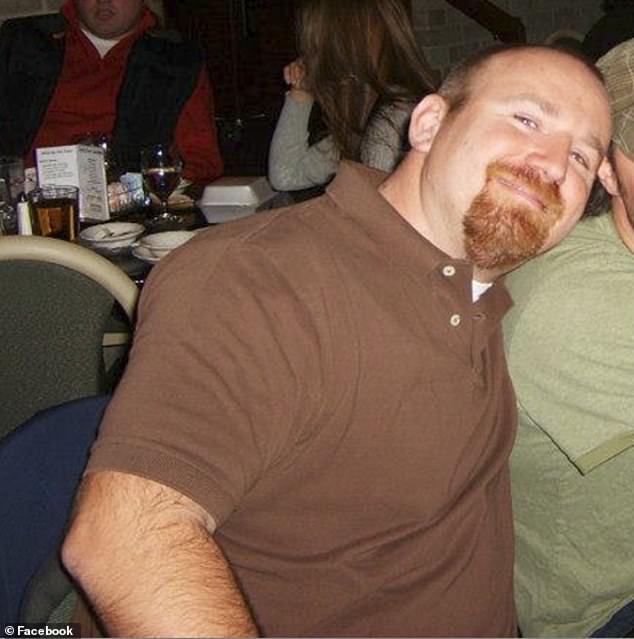After decades of working manual jobs, John McKivison’s life has changed enormously in the last four years.
The 49-year-old was diagnosed with a rare blood cancer during the first year of Covid, and will now receive the largest damages award in US history.
A Philadelphia court ruled last week that his illness was caused by a decade of using the herbicide Roundup while working as a gardener for a logistics company in Lock Haven, Pennsylvania, where he lives.
The jury ruled that German consumer goods giant Bayer should pay $2.25 billion: $250 million to compensate McKivison and $2 billion in punitive damages.
Bayer has promised to appeal the verdict, which would prevent the company from having to pay that money. If the payment were made, it would be the largest in a litigation of this type.
About 40,000 Americans have filed lawsuits against the companies, most of whom allege that the herbicide caused their cancer, but only four cases have gone to trial.
Legal experts say McKivison is unlikely to get the money.
John McKivison, 49, will receive the largest Roundup payout yet: $2.25 billion, according to a court verdict.

McKivison, pictured in blue, worked in a local paper mill warehouse where he used Roundup for about eight years.
Over the years, Bayer has paid more than $10 billion in settlements to cancer patients and their heirs who sued over its herbicide’s link to cancer and accused the company of failing to warn customers about the risk.
Four cancer patients came to trial. Dewayne Johnson, Edwin Hardeman and Alva and Alberta Pilliod, and were awarded a collective $132 million after the jury sided with them.
Original payouts decided by juries amounting to billions of dollars were eventually reduced after judges deemed the sums excessive.
Bayer has vowed to appeal verdicts forcing the company to pay millions to sick consumers, meaning it could take years for lawsuit winners to see financial restitution, if it ever comes.
The verdict in Mr. McKivison’s favor marked one of the largest payouts in a consumer injury lawsuit.
They agreed that Bayer and Monsanto, the product’s co-manufacturers, were negligent in their safety evaluations of Roundup’s ingredients and failed to warn consumers about the risk of using it.
Court documents seen exclusively by DailyMail.com reveal that McKivison was exposed at his job as a gardener in a warehouse at a local paper mill near his home in Jersey Shore, Pennsylvania.
There, in addition to being the company’s gardener, he was entrusted with loading and unloading paper boxes.
McKivison stated in his deposition that he often wore short-sleeved shirts while spraying the area with a concentrated version of Roundup.
He also did not constantly wear a mask or gloves because he did not know that such protective equipment was necessary.
He wore gloves “mainly to keep clean.” When you work near the tractor, there’s a lot of grease and things like that.’
He began to feel unwell in 2015 and was hospitalized for three days. Doctors had found no cancer in him at the time, but they diagnosed him with vertigo before sending him home.
It wasn’t until the summer of 2020 that doctors tested him for cancer.
In July of that year, they performed a bone marrow biopsy, a procedure in which doctors insert a thin needle into the bone and suction out a small core of bone marrow, where blood cells are produced.
The sample is then examined under a microscope to analyze the health of the blood cells.
The following month, doctors confirmed that McKivison had a rare type of blood cancer called marginal zone lymphoma, which sickens between 1,000 and 2,300 Americans each year.
The disease is caused by the abnormal growth of B lymphocytes, a type of white blood cell.
Marginal zone lymphomas tend to grow slowly but respond well to treatments including chemotherapy and antibody infusions.
Survival rates are high: According to data, between 77 and 88 percent of patients are alive after five years.
Mr. McKivison’s condition is unknown.

Roundup’s ingredients include several carcinogens, including glyphosate.
Two key ingredients in Roundup, glyphosate and polyethoxylated seboamine (POEA), work together to make the product carcinogenic. Scientists have known since at least 1991 that pesticides with glyphosate and other chemicals are more harmful than glyphosate alone.
Subsequent studies, including one from 2004found that Roundup triggered two telltale signs of tumor growth, including abnormal cell development.
POEA increases the amount of time that Roundup chemicals remain on the skin.
The skin becomes irritated, making it easier for toxins to pass through the walls of blood vessels.
It is thought that from there, chemicals can leach into the bone and infiltrate the bone marrow, affecting the production of blood cells.
There has been debate about whether glyphosate is a true carcinogen. The World Health Organization’s cancer agency published a report in 2015 classifying the ingredient as a possible carcinogen.
The United States Environmental protection agencyMeanwhile, he maintained that “there are no concerning risks to human health” and that glyphosate is “unlikely to be a human carcinogen.”
It is known that POEA is toxic to freshwater fish and, according to expert toxicologist Dr. William Sawyer who testified in the case, it is 40 times more toxic than glyphosate.
Roundup also contains formaldehyde and ethylene oxide, both known carcinogens.
The verdict determined that Monsanto was negligent in its duty to ensure that the products it manufactured, marketed, advertised and distributed were definitely safe and, furthermore, failed to warn customers about the different risks.
The jury ruled that the company’s failures caused Mr. McKivison’s cancer, which could have been prevented if he had been properly warned.
The very high sum that could be awarded to Mr. McKivison marks an important reckoning for Bayer and Monsanto.
McKivison’s lawyers say in court papers that the case marks “50 years of negligence” and indicates that companies must undergo top-to-bottom personnel changes to finally remedy long-standing product safety and testing problems for good. data.
The appeal process could last several months or more than a year, meaning it could take at least a year – or more – until McKivison sees a penny, in case the appeal fails.
The case was heard in the Philadelphia Court of Common Pleas, which is the state’s trial court system.
The institution has been accused of being overwhelmingly in favor of plaintiffs alleging misconduct by large corporations, resulting in massive payouts to people like McKivison.
For example, in December 2022, the Philadelphia County Court of Common Pleas awarded a mesothelioma plaintiff who alleged he was exposed to asbestos contained in gaskets and packaging materials $25 million in damages.
Some have described the court as ‘judicial hell’ and a “hotbed for massive tort suits from out-of-state plaintiffs.”
This is just one of the many legal trials that Bayer has had to face over accusations that its product has caused cancer in its users.
In 2019, the San Francisco appeals court upheld a 2019 decision that awarded a whopping $86 million to Alva and Alberta Pilliod of Livermore, who sued Bayer alleging they were diagnosed with non-Hodgkins lymphoma as a direct result of 30 years of use of glyphosate-based medication. lawn treatment.
And in 2018, the terminally ill Dewayne Johnson, 46 years old at the time, won $289 million in a landmark verdict after a jury determined that the herbicide Roundup played a role in the development of his lymphoma.
That sum was later reduced to about $78 million after the trial.


